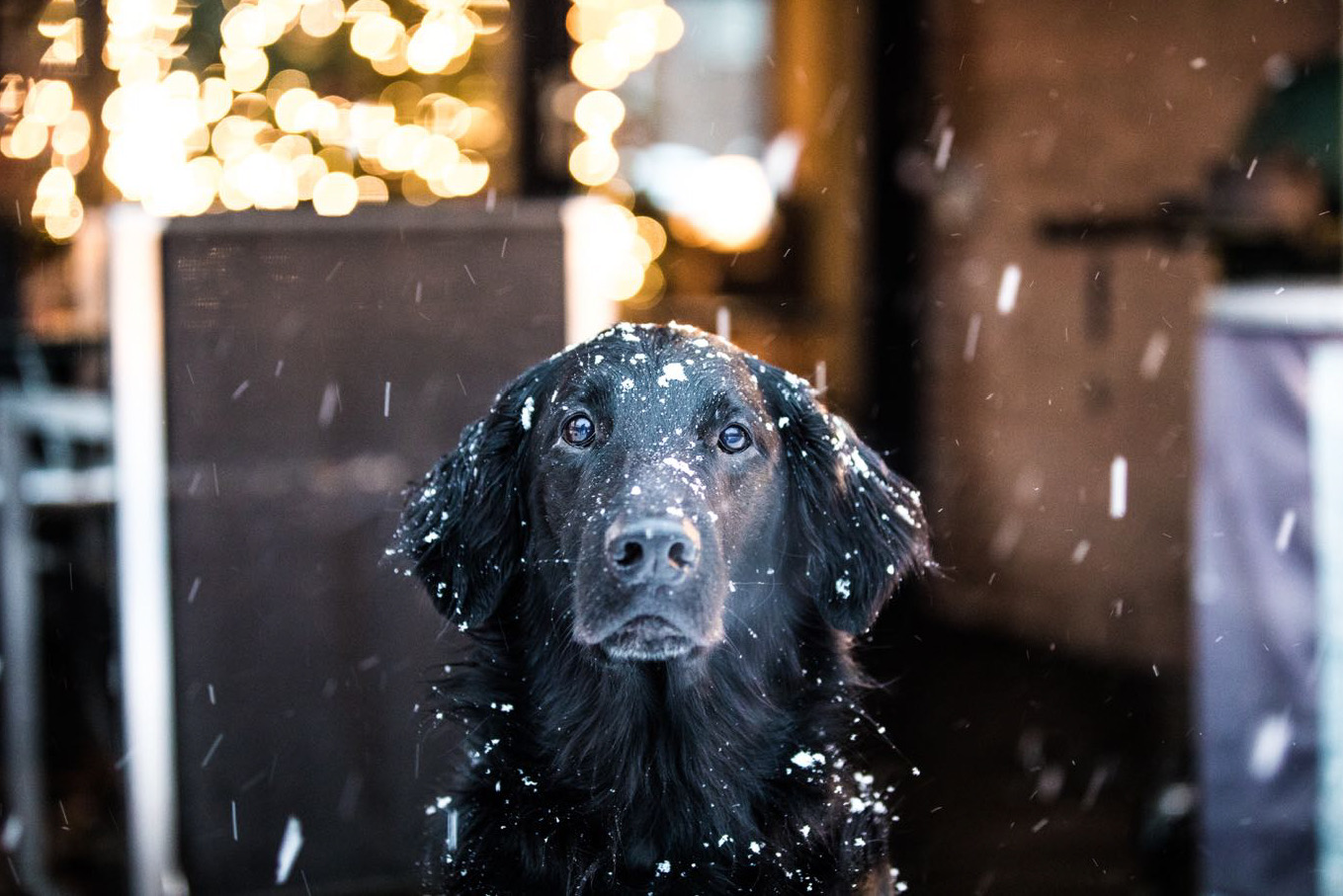Winter, with its snow, ice and chilly temperatures, brings about a change in routine, both for us and for our pets. To keep our four-legged companions healthy and safe during the winter, it’s important that we take precautions. Here are a few of the extra responsibilities pet owners have during winter months, provided by Chico, your neighbourhood pet shop.
Caring for your pet’s paws
Prolonged contact with ice or snow can cause damage to an animals’ paws, including cracking in the pads. It’s important to always thoroughly clean animals’ paws after they’ve been outside. In doing so, not only will you get rid of any snow and thereby prevent frostbite, but you’ll also wipe away the road and sidewalk salt. These salts irritate and damage animals’ paw pads and can potentially make your animal sick should they lick it off.
Adjusting outdoor habits
When it’s cold and windy animals lose body heat rapidly and you should therefore shorten your dog’s walks or your cat’s outdoor time. As a further precaution, you can equip your pet with winter apparel designed specially for animals. Additionally, animals that spend lots of time outdoors will need larger food portions during winter. Cats require about 10% larger portions and dogs 15 to 20% larger portions. This makes up for the extra energy they expend and helps them maintain the correct body temperature.
If your dog lives outdoors, you need to make sure the doghouse is adequately insulated and the bed is warm and dry. You also need to pay close attention to your dog’s water, as it can freeze very quickly in cold weather. Drinking water regulates your pet’s body temperature.
Taking special precautions
During storms, a dog’s sense of smell diminishes and as a result is at risk of getting lost. Off-leash outings should, consequently, be kept to a minimum. And outings should be confined to your immediate neighbourhood so that you can quickly return home when need be.
Note that outdoor cats tend to seek heat beneath cars during the winter. Always take a look under your car before driving it. Tapping on the hood or honking the horn will draw the cat out. Finally, don’t let your pet eat snow, as this can lead to serious digestive problems.
For other tips, don’t hesitate to reach out to us. At Chico, we tailor our recommendations based on your pet’s specific needs. That’s just one part of our personalized customer service. Drop by to see us today!

